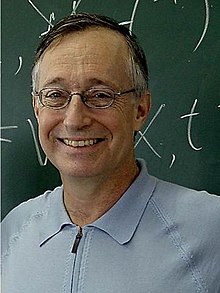
News today that my PhD Supervisor, Paul Milgrom, won the Nobel prize for economics. He won it with his PhD Supervisor, Bob Wilson. Both were long overdue for the honor.
There are so many things one could say about Paul but it turned out that I said what I wanted to say back in 2013 at a conference in his honor to celebrate his 65th Birthday. Here were my remarks.
I am here to talk about Paul’s contributions to applied theory. While Susan and Yeon-Koo have talked about theoretical contributions that so many in this room associate with Paul, to the wider profession, his main contribution is somewhat different.
Take a look here at his most highly cited works. With just a couple of exceptions, it is all applied theory. And moreover, when you look at where those citations are coming from it is not economics. It is management, strategy and finance. In other words, Paul is the most significant theorist in business and management, today, and possibly ever.
How did this happen? To give some context, there is really a schism in economics and social science in general. It surrounds the issue of complexity. There are many social scientists who think the world is too complex to make simplified theory useful. When you use specific assumptions — like rationality or expected utility or equilibrium — or more commonly in applied work, functional forms — they argue that you miss so much that what remains is useless.
Paul’s view of the world, it seems to me, is that complexity must be respected but our tools of economic theory can guide us as to their own appropriateness. In that respect, simplicity is a virtue and is manageable so long as the tools and methodology applied is understood.
Take the famous result in agency theory of Bengt and Paul’s that simple wage functions can be optimal. Everyone knew those functions were employed in practice but the ‘informal’ reaction was that it was a response too difficult of doing more, or a saving of cognitive costs or a lack of skill. Paul said no, it can’t be that. There will always be a smart agent who would improve it and then we would see heterogeneity. Instead, the complexity of the world itself would give rise to a simple response.
That is one way to read all of Paul’s work. Simplicity must be a response to the complex environment. And simple theoretical treatments can be immediately generalised if those treatments capture key trade-offs. Paul taught us where to look.
What I learned from this is that in applied theory there is a symbiotic relationship between the real world phenomenon, the formal model and its intuition. And there are feedbacks between all three in the exploration that is economic theory. I had the pleasure of observing Paul, and John, during the hey-day of their foray into organisational economics. Time and time again, they would take an individual transaction (Paul contracting with a builder, say; Paul thinking about spectrum packets; observations of a Toyota factory in Japan) and realise why existing theory just couldn’t apply. In that process, they would identify and relax the key assumption and draw new implications (the job design should change; you have to us computer technology to deal with substitutes and complements in packages; that change will be hard) and discover it in the real world. They would leave behind a framework for empirical researchers to follow and that is where all those citations come from. They seep through MBA curriculum. It is a tremendous legacy.
Not only that, Paul appears to yearn for ‘beauty’ in his theories. If it is a mess, you must be missing something. You haven’t identified the key trade-offs. These papers are beautiful. I have taken this to my own applied work. Avoid contrivance. Understand intuition. And above all, become a useful theorist. That will make theory useful.
Now for we mortals this is a challenge. Paul lights the path because it comes easily to him. I remember him lamenting to me that it took him a whole day — a whole day — to get the model right for a paper. But that doesn’t mean that we should not aspire for the same.
Applied theory is an area that continues to have issues finding its place in economic research. But Paul has, in many respects, allowed good applied theory to flourish and rise to a new standard.
For that conference, the attendees all contributed to complete Paul’s wikipedia page. The idea was to make sure that everything was there specifically for today. I had a goal of making it the longest page of any living economist. We overshot and it is the longest page of any economist! His contributions were so voluminous, it wasn’t hard to get to that point.


3 Replies to “Remarks on Paul Milgrom”